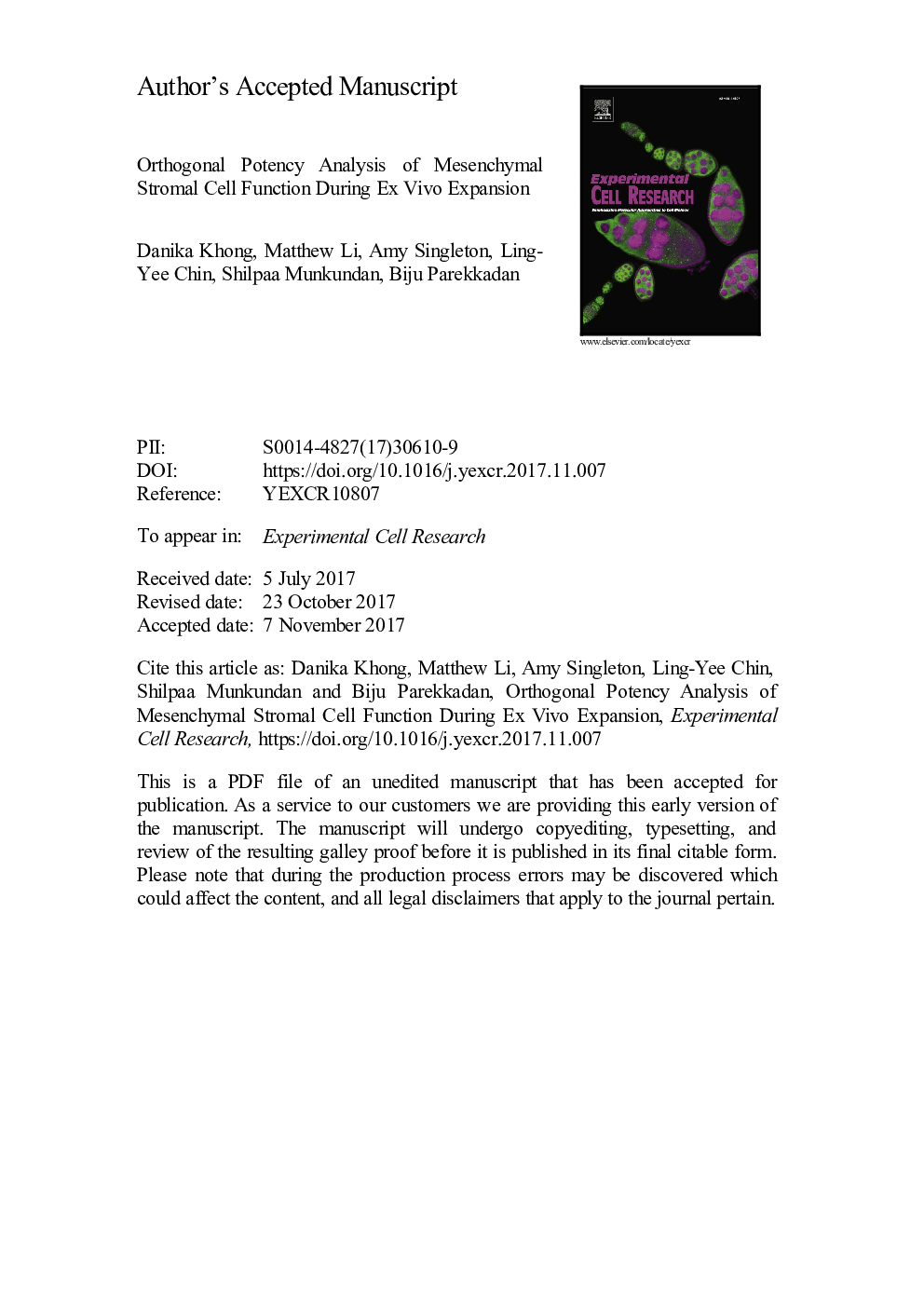| Article ID | Journal | Published Year | Pages | File Type |
|---|---|---|---|---|
| 8451618 | Experimental Cell Research | 2018 | 18 Pages |
Abstract
Adult bone marrow mesenchymal stromal cells (MSCs) have cross-functional, intrinsic potency that is of therapeutic interest. Their ability to regenerate bone, fat, and cartilage, modulate the immune system, and nurture the growth and function of other bone marrow hematopoietic stem/progenitor cells have all been evaluated by transplant applications of MSCs. These applications require the isolation and expansion scaled cell production. To investigate biophysical properties of MSCs that can be feasibly utilized as predictors of bioactivity during biomanufacturing, we used a low-density seeding model to drive MSCs into proliferative stress and exhibit the hallmark characteristics of in vitro aging. A low-density seeding method was used to generate MSCs from passages 1-7 to simulate serial expansion of these cells to maximize yield from a single donor. MSCs were subjected to three bioactivity assays in parallel to ascertain whether patterns in MSC age, size, and shape were associated with the outcomes of the potency assays. MSC age was found to be a predictor of adipogenesis, while cell and nuclear shape was strongly associated to hematopoietic-supportive potency. Together, these data evaluate morphological changes associated with cell potency and highlight new strategies for purification or alternatives to assessing MSC quality.
Related Topics
Life Sciences
Biochemistry, Genetics and Molecular Biology
Cancer Research
Authors
Danika Khong, Matthew Li, Amy Singleton, Ling-Yee Chin, Shilpaa Mukundan, Biju Parekkadan,
